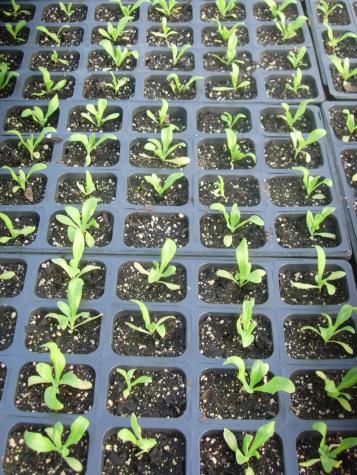
MU tackles food defense
COLUMBIA, Mo. – The University of Missouri College of Agriculture, Food and Natural Resources and MU Extension are teaching farmers, meat and poultry processors, agriculture students, food service professionals and others how to defend against intentional food contamination.“There are many vulnerable access points within the farm-to-table food chain,” said Bob Weaber, MU Extension beef specialist.
Prepare for grass tetany season
COLUMBIA, Mo. – A University of Missouri Extension beef nutrition specialist counsels farmers to prepare for grass tetany season in March.Grass tetany can result from a magnesium deficiency in spring calving herds consuming lush forages high in potassium and low in calcium and sodium, said Justin Sexten of the MU Extension Commercial Agriculture Program.
Worm composting reduces household wastes
BLUE SPRINGS, Mo. – If you’re intimidated by the idea of building and maintaining a backyard compost pile, an indoor alternative is to feed your fruit and vegetable scraps to worms.

Jump-start your garden by planting seeds indoors
BLUE SPRINGS, Mo. – If you are planning a large vegetable garden this year, growing your own transplants offers advantages over direct seeding. Germinating seeds in a greenhouse, hotbed or your home can reduce transplant mortality and improve seedling vigor, said a University of Missouri Extension horticulture specialist.
Start your shears: it’s pruning time
COLUMBIA, Mo. – Gardeners should make a pruning tour of their landscape now to touch up trees and shrubs, especially those planted in the past two years, said a University of Missouri horticulturist. “There are several advantages to spring pruning,” said Chris Starbuck. “With no leaves, you can see what you are doing.” With rising temperatures, cold snaps are unlikely to damage new growth. Pruning cuts heal quickly.
Eager gardeners should be wary of last spring frost
COLUMBIA, Mo. –Gardeners eager to plant their first annuals and vegetables should be wary of a last spring frost.“I tell people, if you plant early, plant only what you don’t mind losing,” said Mary Kroening, University of Missouri Extension horticulturist.Garden centers often urge early planting to help sales, but gardeners should be patient, she said.
Helping children cope with a parent's job loss
BLUE SPRINGS, Mo. – A change in financial status due to the loss of a job is a difficult crisis for families to experience. How parents handle the situation can influence their children, so it is important to communicate with them in an age-appropriate way, said a University of Missouri Extension human development specialist.
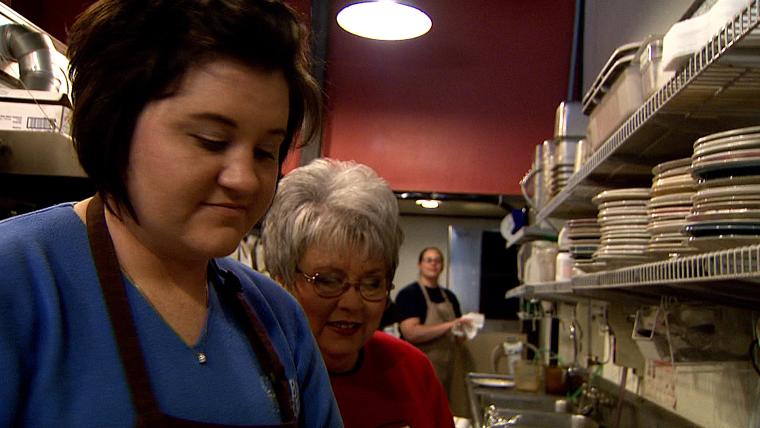
Helping new businesses plan for success
JOPLIN, Mo. – Starting a business can be challenging even during a robust economy, yet opportunities still exist in today’s tough economic climate. However, it’s crucial for would-be entrepreneurs to do their homework before taking out a loan or cashing in retirement savings, said a University of Missouri Extension business development specialist.
Deeper isn’t always better when transplanting trees
COLUMBIA, Mo. – You don’t have to break your back when transplanting a tree, said a University of Missouri horticulturist. Research on tree root growth after transplanting suggests that you do not have to dig a deep hole, said Chris Starbuck. “In most soils, 90 percent of the actively absorbing root tips are within 12 inches of the soil surface, so it’s important to create a soil environment surrounding a new tree in which roots can…
Help your child get a good night’s sleep
BLUE SPRINGS, Mo. – Children who get enough sleep are more likely to function better and are less prone to behavioral problems and moodiness. “That is why it is important for parents to start early and help their children develop good sleep habits,” said a University of Missouri Extension 4-H youth development specialist.
Puny particles pack punch against harmful microbes in food
COLUMBIA, Mo. – Findings by University of Missouri scientists indicate that zinc oxide nanoparticles could be a weapon against harmful molds and bacteria in food.“These results suggest that zinc oxide nanoparticles could potentially be used as an effective post-harvest antimicrobial agent in agricultural and food-safety applications,” said Mengshi Lin, assistant professor of food science.
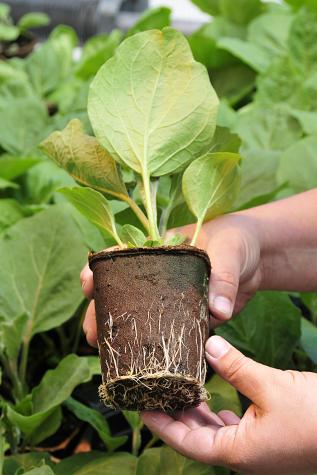
Living pots
COLUMBIA, Mo. – Want to make your garden or flower bed even more green this year? Forgo those plastic planting pots and go biodegradable.Starting this growing season, the teaching greenhouses and in-house florist shop at the University of Missouri College of Agriculture, Food and Natural Resources will use 100-percent biodegradable pots to grow plants such as tomatoes, peppers, eggplants, cucumbers, melons and herbs.
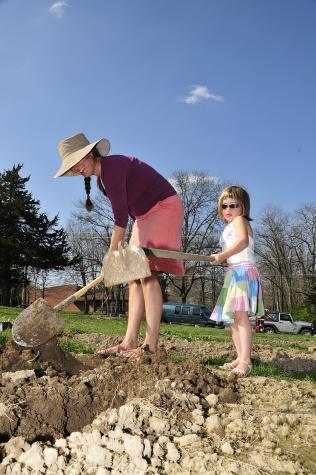
Save money by planting a vegetable garden
Learn how planting your own vegetables can help you reduce grocery bills, grow fresh produce at home, and enjoy healthier meals.
Scouting fields crucial to managing wheat foliage diseases
LAMAR, Mo.– There are foliar diseases that can cause yield loss in winter wheat, said Jay Chism, an agronomy specialist with University of Missouri Extension in Barton County.“It is important to scout wheat fields for diseases,” he said. “The key is to apply fungicides to wheat at the early boot stage to head emergence.” Applying fungicides at this growth stage, when the flag leaf is in danger of infection, provides the most…
Motivation for those who hate exercise
BLUE SPRINGS, Mo. – Many people profess to hate exercise, but there are ways to get motivated and even learn to enjoy keeping fit, said a University of Missouri Extension nutrition and health education specialist.“Many people get off to a bad start by taking the all-or-nothing approach,” said Lynda Johnson.
Teaching children the value of chores
BLUE SPRINGS, Mo. – Families that work together and share responsibilities raise children who understand the value of work, said a University of Missouri human development specialist. “Giving children jobs around the home helps parents and teaches children they are important cogs in the household wheel,” said Kris Jenkins. “Chores help children learn to take pride in their work and gain self-respect.”
Missouri native grasses tame high-explosive residue in soil
COLUMBIA, Mo. – Two native Missouri grasses show promise in breaking down military explosives that contaminate soil and water at sites across the country, say University of Missouri and Lincoln University researchers.Switch grass and eastern gamma grass have high potential for breaking down TNT and RDX, two of the military’s most important high explosives, said Chung-Ho Lin, research assistant professor at the MU Center for…
Plug the spending leak in your wallet
BLUE SPRINGS, Mo. – Evaluating the small purchases you make each day can be the key to accumulating wealth rather than living paycheck to paycheck. “The money that slips through our fingers from insignificant daily purchases can add up to big bucks over time,” said a University of Missouri Extension family financial education specialist.
Overscheduled children under stress
BLUE SPRINGS, Mo. – Adults often complain about the stresses of daily life in our fast-paced society, but children are not immune to the effects of an overscheduled lifestyle, said a University of Missouri Extension human development specialist. Scheduling time at home for the family to relax and play together when there are no plans, no pushing and no hurrying is essential, said Lisa Wallace.
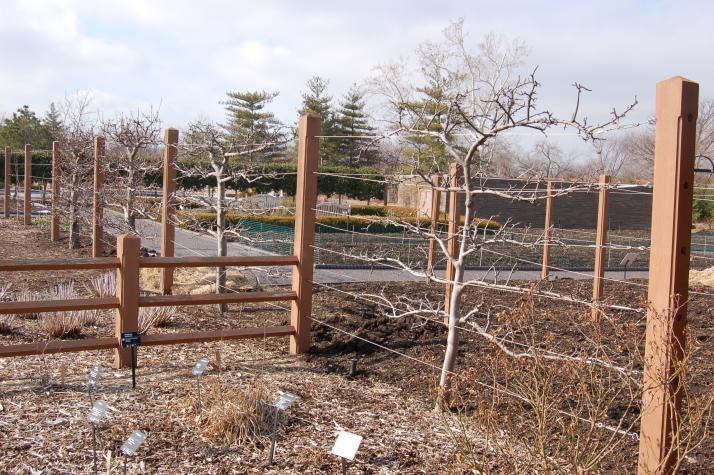
Incorporate the art of espalier in your landscape
BLUE SPRINGS, Mo. – Espalier (pronounced “is-PAL-yer”) is a centuries-old art of growing plants in two dimensions, or on a single plane. Most people have areas in their gardens where an espaliered plant would fit, either as a way to spruce up a barren wall or as a screen, said a University of Missouri Extension horticulture specialist.
Evaluating acai berry health claims
BLUE SPRINGS, Mo. – The popular Brazilian acai berry has been touted as a superfood that can promote weight loss, reduce wrinkles, cleanse colons and bolster the immune system. Consumers should be skeptical of these claims, said a University of Missouri Extension nutrition and health education specialist.
Thatch management is key to maintaining zoysia grass lawns
COLUMBIA, Mo.—Due to warm, humid days this spring, homeowners and lawn managers might notice an off-yellow or orange coloring of zoysia grass lawns, said a University of Missouri turf researcher. Large brown patch, or zoysia patch, is a fungal disease that creates patches of discolored zoysia grass, leading to weed invasion, said Brad Fresenburg. No truly effective fungicides are available over the counter.
Attracting amphibians to your garden
BLUE SPRINGS, Mo. – One-third of Missouri’s 43 native amphibians have deteriorating populations, but you can help out by taking some steps to make your backyard more attractive to amphibians, said a University of Missouri Extension horticulturist.
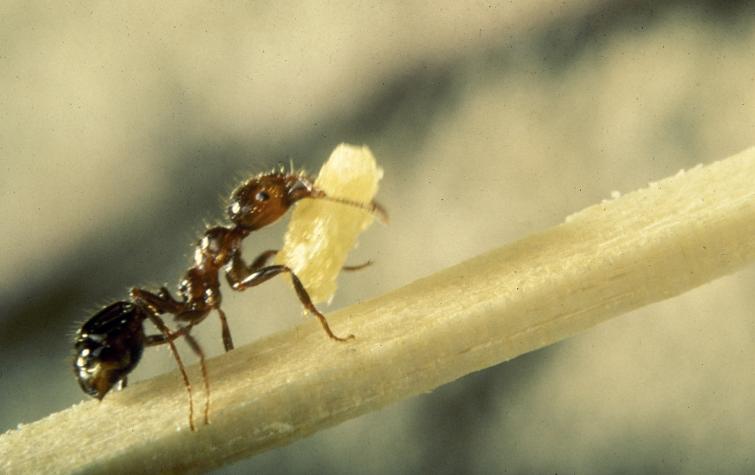
Fire ants may be hiding in imported hay
COLUMBIA, Mo. – Missouri farmers who bought hay from parts of the southern U.S. may have accidentally brought along a nasty visitor. The imported fire ant, an aggressive, stinging insect native to South America, has infested more than 380 million acres in at least 13 states, according to the USDA’s Animal and Plant Health Inspection Service (APHIS). The ants can spread to new locations as stowaways in bales of hay.
Don't overwater heat-stressed plants
COLUMBIA, Mo. –Landscape plants have flourished over an ideal spring. Azaleas and hydrangeas have never looked better, but many of the lush leaves that developed during the mild weather will scorch, turn brown or even fall off when the summer heat returns, said a University of Missouri Extension horticulturist.
